Catholic Church
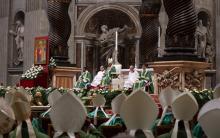
The overriding interest in the global meeting of Roman Catholic bishops that finishes here on Oct. 25 has centered on whether the churchmen will actually do anything in the end — as in vote to make changes in church doctrines or policies — or leave well enough alone.
In reality, the gathering of 270 bishops from around the world, called a synod, has no authority to legislate doctrinal or other changes, and wasn’t expected to try anything that bold anyway.
Its real purpose — thanks to reforms instituted by Pope Francis — is to discuss issues openly and frankly, and to advise the pontiff about what they think the church ought to do about the challenges facing families today, or, as is likely the case for this divided synod, to kick the hard questions upstairs for him to decide.

The rows of seats in the synod hall, where Catholic bishops are meeting to discuss family issues, are filled with bishops and cardinals — all male. To find any women, look to the back of the room.
The women’s distance from the heart of the synod hall reflects fears raised by women’s groups that their participation is a mere token on the Vatican’s part.
There are 270 bishops and cardinals participating in the synod and voting on its outcome. A number of other participants, including lay couples and representatives from other churches, have been invited to give their opinions but will not be able to make decisions on the final text. That includes more than two dozen women who have been called to present their views.

The eight American bishops taking part in a Vatican summit on family life stay at a huge seminary built high on a hill overlooking St. Peter’s Basilica and the rest of the Eternal City.
It’s a lovely place with spacious apartments for each bishop and any amenity they might need.
But for all that, it may be getting a tad uncomfortable.
In the latest installment of an increasingly sharp exchange conducted via the media, Philadelphia Archbishop Charles Chaput on Oct. 19 rejected what he took as a swipe at him by Washington Cardinal Donald Wuerl, also a member of the U.S. delegation at this gathering of global bishops.

The morning prayer that starts each session of a major gathering of Catholic churchmen underway here is an important chance for the 270 cardinals and bishops from around the world to set a meditative tone for what are contentious debates about church teachings on sexuality and family life.
With Pope Francis leading the way, the prelates seated in a large Vatican lecture hall chant the traditional Latin prayers pausing near the end for a brief reflection on the day’s Scripture by one of the bishops at the meeting, known as a synod.
Yet even that moment of spiritual peace is not always a sanctuary from the tensions roiling the three-week meeting that ends Oct. 25.

Even as Pope Francis and Catholic leaders from around the world debate ways to make the Catholic Church more inclusive, Newark Archbishop John Myers has given his priests strict guidelines on refusing Communion to Catholics who, for example, support gay marriage or whose own marriage is not valid in the eyes of the church.
In the two-page memo, Myers also orders parishes and Catholic institutions not to host people or organizations that disagree with church teachings.
He says Catholics, “especially ministers and others who represent the Church, should not participate in or be present at religious events or events intended to endorse or support those who reject or ignore Church teaching and Canon Law.”

A surge of migrant deaths in deadly voyages across the Mediterranean Sea has become a modern-day refugee crisis.
But the Rev. Mussie Zerai, a 40-year-old Roman Catholic priest from tiny Eritrea, north of Ethiopia, has moved to help migrants trapped in the North African deserts and rickety wooden boats drifting across the sea.
“It is my duty and moral obligation as a priest to help these people. For me it’s simple: Jesus said we must love one another as we love ourselves,” Zerai said in a telephone interview.
The little-known priest, now based in Rome and Switzerland, was among this year’s nominees for the 2015 Nobel Peace Prize, along with Pope Francis. (The prize, announced Friday, was awarded to the National Dialogue Quartet, which helped build a pluralistic democracy in Tunisia.)
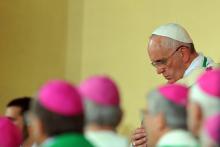
Pope Francis on Oct. 14 asked forgiveness for a series of scandals that have befallen the Vatican and Rome.
Francis did not specify the scandalous events to which he was referring, although the departure of a gay cleric earlier this month may well have been on the pontiff’s mind.
“I ask you for forgiveness for the scandals that have occurred recently either in Rome or in the Vatican,” the pope said during his weekly general audience in St. Peter’s Square.

Pope Francis’ first U.S. visit gave his already-high favorability ratings only a modest bounce with most Americans — and no bounce at all among Catholics.
Yet his three-city September tour — from Congress to the United Nations and from cathedrals to a prison — generated significant goodwill toward the Catholic Church, according to a new survey by the Pew Research Center.
Pew’s survey, conducted just days after the pope returned to Rome, was released Oct. 7 and offers a snapshot of his initial impact.
The top finding: “Four times as many U.S. adults say their opinion of the Catholic Church is better now because of Pope Francis as people who say their impression has gotten worse,” said Greg Smith, associate director of research and co-author of the report.
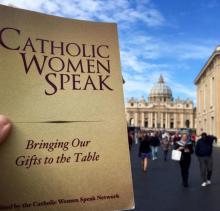
Divorce, cohabitation, and gay relationships are just some of the issues up for discussion at the Vatican synod, which continues through Oct. 24. It follows a questionnaire consultation with Catholic groups after a meeting on family issues a year ago.
Some critics say that more women should have been included in the process. Only bishops can vote at a synod, but about 30 women have been invited as auditors.
Mary McAleese, former president of Ireland, said she was skeptical that any real change would come from the synod. “If I wanted expertise on the family, I honestly cannot say that the first thing that would come into my mind would be to call together 300 celibate males, who between them, that we know of, have never raised a child,” she said on Saturday, speaking at an event hosted by gay Catholics.

Pope Francis returned to Rome Sept. 28 after the longest and perhaps most challenging foreign journey of his pontificate: a trip that lasted 10 days and took him from the communist outpost of Cuba to the capitalist superpower of the U.S., where the popular pontiff faced some of his toughest critics — both inside and outside the church.
Now comes the hard part.
On Oct. 4 in the Vatican, Francis formally opens a three-week meeting of some 270 bishops from around the world who will discuss — or, more likely, argue vociferously about — church teachings on family life, a topic that encompasses hot-button questions about the church’s views on divorce, homosexuality, and cohabitation.

On his first full day of the visit, Francis praised U.S. bishops for their “courage” in facing the difficult moments of the explosive clergy abuse scandal “without fear of self-criticism and at the cost of mortification and great sacrifice.”
Listeners, however, were shocked, mindful that the church has spent hundreds of millions in settlement payouts — often after years of protracted legal fights — to compensate for decades of bishops who protected, even promoted, abusive priests.
He sounded “tone-deaf,” said Vatican expert the Rev. Thomas Reese.

The Atlanta Journal-Constitution reported Tuesday that the pope, back in Rome after a six-day visit to the United States, sent a letter through a representative, Archbishop Carlo Maria Vigano.
“While not wishing to minimize the gravity of the crime for which Ms. Gissendander has been convicted, and while sympathizing with the victims, I nonetheless implore you, in consideration of the reasons that have been expressed to your board, to commute the sentence to one that would better express both justice and mercy,” Vigano wrote.
“In reaching its decision, the Board thoroughly reviewed all information and documents pertaining to the case, including the latest information presented by Gissendaner’s representatives,” a release sent from board chairman Terry Barnard said. No other explanation of the decision was given.

In a deeply personal talk that blended poetry and a new set of marching orders for the U.S. hierarchy, Pope Francis on Sept. 23 told U.S. bishops to reject “harsh and divisive language” and to reach out to the world, especially those in need.
The bishops, he said, should embrace an approach “which attracts men and women through the attractive light and warmth of love.”
Their mission, Francis told some 300 bishops gathered for noonday prayer in St. Matthew’s Cathedral, “is not about preaching complicated doctrines, but joyfully proclaiming Christ, who died and rose for our sake.”
“I cannot ever tire of encouraging you to dialogue fearlessly,” Francis told them, repeatedly stressing the word “dialogue” and urging them to be “promoters of the culture of encounter.”
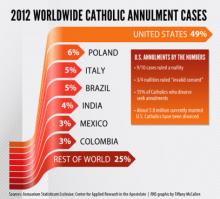
The streamlined marriage annulment procedures unveiled by the Vatican are aimed at simplifying what is often a tedious gauntlet of red tape. But it’s not clear how much effect the reforms ordered by Pope Francis will have in the U.S., where about half of all annulments are granted even though American Catholics are just 6 percent of the global church.
That’s largely because in recent decades American dioceses have taken a number of steps to make the process less cumbersome and time-consuming, some of which were reflected in the new procedures announced Sept. 8 in Rome.
The new rules, the most sweeping reform in centuries, eliminate an automatic review of any “decree of nullity” by a second panel of church judges, and they provide for what is being called a fast-track option that allows for an annulment to be granted by the local bishop within 45 days if both spouses request an annulment or don’t oppose it.
It’s an issue that potentially affects millions of people: in the U.S., 25 percent of Catholics have been divorced; 26 percent of them say they sought annulment, according to Pew Research.
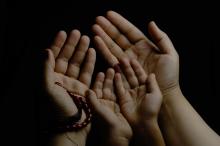
A new survey released from Pew Research Center, conducted in the lead-up to the pontiff’s visit, examined U.S. Catholics’ attitudes on family, marriage, and sexuality, as well as on issues close to the pope’s heart — concern for the poor, care for the environment, and forgiveness of sins. The results found Catholics “remarkably accepting of a wide variety of non-traditional families.”
This is not to say longstanding church teaching on marriage has changed — the church very much still upholds lifelong heterosexual monogamous marriage with children as the divine plan for coupleship, and nine-in-ten U.S. Catholics say this is the ideal arrangement. But large majorities now say other familial arrangements are acceptable, too.
According to the survey of U.S. Catholics, 85 percent say it is acceptable for a man and woman to live together as a couple outside of marriage, and 84 percent say it is acceptable for raise children in this arrangement. Two-thirds say it is acceptable for same-sex couples to raise children. And 70 percent say married couples who choose to not have children are choosing a lifestyle that is just as good as any other.

“The California drought is so bad, people in Napa are asking the pope to change the wine into water.”
That joke, courtesy of late-night TV host Conan O’Brien, is the warmup to a new “Joke with the Pope” digital campaign, encouraging people to “donate” a joke to support one of three causes ahead of Pope Francis’ historic U.S. visit.
The campaign, which begins Sept. 8, is being launched by the Pontifical Mission Societies in the United States and precedes the release of its new mobile app, Missio. The mission societies work to spread the Catholic faith overseas, especially in poor and remote areas.
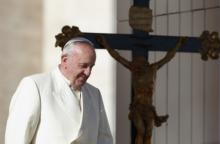
Pope Francis on Sept. 1 told priests to forgive repentant women who had had an abortion, specifically during the yearlong jubilee celebration of Catholic faith, which begins in December.
In a letter to the president of the Pontifical Council for the Promotion of the New Evangelization, the pontiff urges priests to express “words of genuine welcome” to repentant women who have undergone abortions, “combined with a reflection that explains the gravity of the sin committed.”

Growing conservative disaffection with Pope Francis appears to be taking a toll on his once teflon-grade popularity in the U.S., with a new Gallup poll showing the pontiff’s favorability rating among all Americans dropping to 59 percent from a 76 percent peak early last year.
Among conservatives the dropoff has been especially sharp: just 45 percent view Francis favorably today as opposed to 72 percent a year ago.

The Vatican on June 30 released details of Pope Francis’ itinerary for his Sept. 22-27 U.S. visit, his first, and it shows how this “pope of the people” wants to avoid becoming a prisoner of the East Coast “power corridor” during his five days in Washington, New York, and Philadelphia.
For example, organizers have added visits to a Catholic Charities food program in downtown Washington, a Catholic school in Harlem that serves largely Latino immigrant children, and a prison in Philadelphia to meet with inmates and some of their families.

Pope Francis writes, “All of us can cooperate as instruments of God for the care of creation, each according to his or her own culture, experience, involvements, and talents.” And it is the combination of our talents that can alter the path of destruction we have traveled down for far too long.
Pope Francis paints the picture of this path all too well.